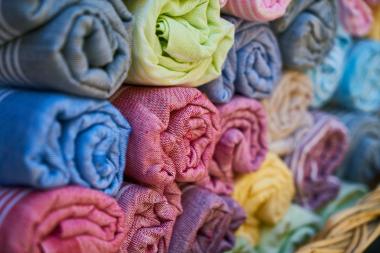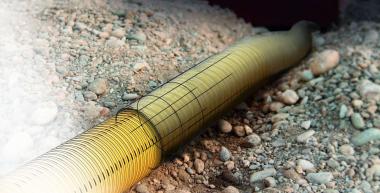GoodTextiles Foundation donates library for Indian primary school
The GoodTextiles Foundation has implemented a school library in the local primary school in Tamil Nadu, India. As a result, the children now have unrestricted access to additional literature.
At the PUPS Naranikuppam primary school in Tamil Nadu, the GoodTextiles Foundation has already provided access to separate sanitary facilities and clean drinking water. Now, with the help of the foundation, a school library has also been set up. The GoodTextiles Foundation is supporting the project with a total of €3,900.00, of which €1,425.00 comes from a donation from Dibella, which was realised with the greenhouse gas premium. The remainder was financed with donations already received.
A large selection of books tailored to the age and interests of the pupils was purchased for the library, as well as a shelf and a seating area. With a new Smart TV, the children can now also be introduced to digital media and how to use it. An air conditioning system provides pleasant temperatures to improve learning conditions. The newly tiled floor, new glass windows and a new glass door also improve the building-specific conditions.
The school is located directly next to a sewing company where the single mothers of the pupils work.
In 2016, the textile company Dibella established the GoodTextiles Foundation with the aim of making textile value chains more sustainable. It raises donations and implements its own funding projects to benefit people at all stages of the textile industry.
The GoodTextiles Foundation











